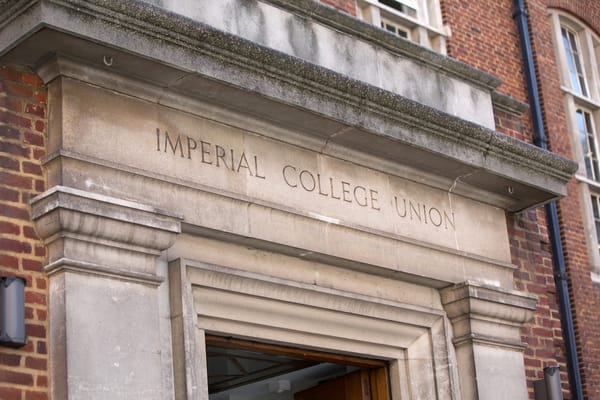When will we get our tuition fees refunded?
Students of Imperial follow up on their request for tuition fee refunds following industrial action earlier this year, asking Professor Gast and the College to take responsibility.

Dear Professor Gast,
We read in Felix on 8th June that Imperial has already withheld nearly £280,000 of wages from staff who took part in this year’s industrial action, with more deductions to come. We are writing, again, to request partial refund of our fees from loss of education as a result of the strike. Your responses to date suggest that there has been no net loss of education. We disagree. As do our lecturers: Dr Stephen Webster, Director of the Science Communication Unit, said there was an inevitable effect:
“Certainly, we lost momentum. Innumerable small and important interactions never happened. And of course, we cancelled formal teaching sessions. So tragic that it had to come to this.”
This is the longest strike and disruption to students’ education in Imperial’s history. With the risk of further strikes next year, we wonder how many days of education we would need to lose from our degrees for you to agree we had suffered a net loss.
Earlier this year, while academic and support staff were exercising their right to strike in protest against unfair changes to their pensions, over 3,000 students signed a letter to you and your senior management team asking for a partial refund in tuition fees; this represents roughly a quarter of the student body for which you are responsible.
As a result of the industrial action, many of us lost out, not only on contact time and support from staff, but more generally momentum and energy. If, as seems to be increasingly the case across the UK, universities are businesses, then we are consumers, and we have the right to request a refund.
The response from the College has thus far been incredibly disappointing. None of the 3,000 students who signed the joint letter have been written to. Many of us have written individual letters addressed to you, but the responses received were corporate “copy and paste” responses, with no attempt to engage in dialogue. Your letters to us simply repeated a statement – which has since been uploaded to the Imperial website – saying:
“Fees cover all aspects of your time at Imperial, and are based on the delivery of overall outcomes, rather than being payments for specific contact hours.”
While we appreciate you recognise our education is about more than just contact hours, we hope that by overall outcomes you did not solely mean our degree certificates. Instead, we hope you meant the list of graduate attributes recorded on Imperial’s own website. Imperial is “committed” to ensuring their graduates will “Demonstrate deep conceptual understanding of their chosen discipline;” “approach challenges with curiosity, critical thinking, and creativity;” and “have developed into independent learners with high self-efficacy,” among others.
To achieve these aspirational outcomes requires departments to deliver the pedagogical approach outlined in your excellent new Teaching and Learning Strategy. We would like to remind you of some of the statements made when launching this strategy. Professor Simone Buitendijk, Vice Provost (Education), noted the emphasis on interactive learning, with “a focus on increasing the sense of community and working with student as partners.” Ms Giskin Day, an Imperial College Principal teaching fellow, envisaged classrooms as “interactive facilitative space(s)” where dialogue rather than didactic delivery was central to learning.
We entirely agree with this visionary and aspirational strategy, and welcome its implementation. However, the response you gave us in reply to our request for a refund in fees seems to discount the view that our education had suffered; not only does this avoid the question of the college’s liability to refund any of our fees, but it goes directly against the ethos set out by your own Learning and Teaching Strategy.
While our fees are not for specific contact hours, it is precisely because we have lost general staff contact time that we have lost the opportunity for dialogue and interaction with them – both of which are central to the College’s educational strategy. On many courses, both undergraduate and postgraduate, we are fortunate to be partners with our lecturers in this excellent type of education; however, it cannot take place when our lecturers are on strike. The educational experience, which was the reason we chose to come to Imperial, is what we value so highly, and not just the outcome. As a result of this loss of dialogue our education has suffered. Indeed, this is the basis of our claims for compensation.
Our educational experience should not be atomised into specific contact hours, but should rather be based on the totality of our learning experience. This requires our teachers and fellow students to be present in the department, at seminars, in classes, and on-line – and not on strike. The key point we were making in our correspondence with the College is that we have lost not just specific contact hours but also the momentum, excitement, and creativity that come from an excellent course. It is our educational experience in its entirety that has suffered as a direct result of the disruptions arising from the strike.
The sad fact is strikes mean lost production. This is the reason the College are withholding pay from our excellent lecturers who went on strike. It seems disingenuous to us that you can therefore also assert that we have not suffered a loss in our education and are not due a refund. For 14 days we were unable to meet with our lecturers who were union members; we missed scheduled teaching sessions; we lost opportunities to learn. This is what the totality of education means to us and not just the final degree outcome.
Despite assurances from senior management about mitigations for the strike, these have been minimal and in no way compensate for our loss. The fact remains that our lecturers were on strike for 14 days in the Spring Term – more than a quarter of the total term. Recovering lost teaching – funded by the College – may help to some extent but needed to fit into students’ existing commitments. Full time students are very stretched already, with multiple commitments, and few have had capacity to retrace steps from the previous term. It can never simply a matter of replacing missing teaching sessions at a later date, particularly for the practical courses that were cancelled and which may be essential for some students in their future careers.
We would like the College to meet with us and our union representatives to agree a way forward that respects students’ loss of education experience through fair compensation. We want to agree a fair process to engage with the 3,000 students who signed the joint letter to you expressing their concerns about potential impact on their education due to the strike and with all the students who have taken the time to write to you individually. We need a fair and transparent process for recognising the loss of educational experience as set out in your Education and Learning strategy.
We feel privileged to be students at Imperial and are fortunate to be receiving an excellent educational experience. This, however, did not happen whilst our lecturers were on strike. We need to agree a fair and just formula for compensation, not just for this strike but, as seems likely, for future strikes next year.
Yours sincerely,
On behalf of the people who have co-signed this letter and the 3,000 who signed the letter about fee refunds earlier this year.
Dr Hilary Guite (Student MSc Science Communication)
Mr Abhijay Sood (Student MSc Physics)








